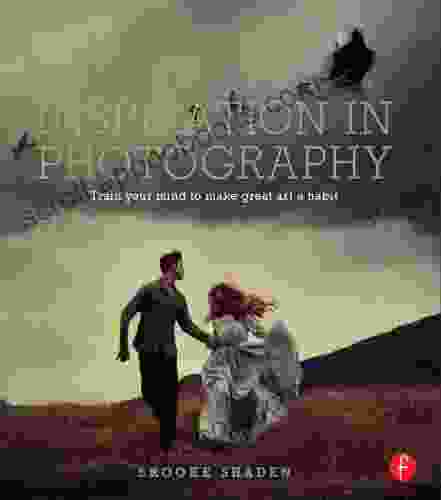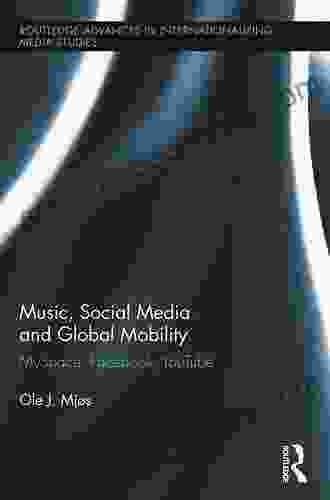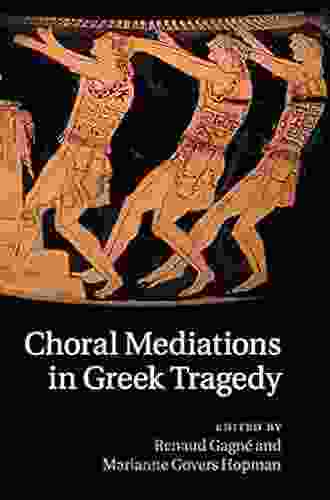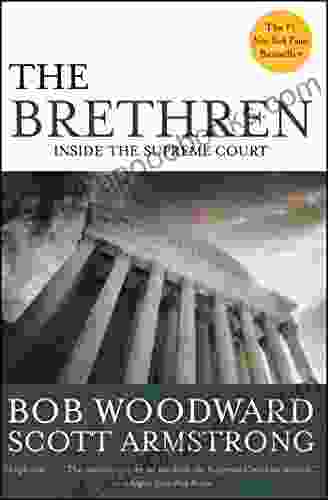Choral Mediations in Greek Tragedy: Unveiling the Multifaceted Power of the Chorus

: The Chorus as an Integral Component of Greek Tragedy
The chorus, an essential element of Greek tragedy, was more than just a group of actors singing and dancing on stage. It served as a vital dramatic device, embodying the collective voice of society and playing a crucial role in shaping the tragic narrative. This comprehensive analysis will delve into the multifaceted nature of the chorus, exploring its poetic, musical, and dramatic significance.
4.4 out of 5
| Language | : | English |
| File size | : | 2750 KB |
| Text-to-Speech | : | Enabled |
| Screen Reader | : | Supported |
| Enhanced typesetting | : | Enabled |
| Print length | : | 441 pages |
I. The Chorus as a Poetic Force: Expressing the Unspeakable
The chorus functioned as a poetic commentator, providing insights and reflections on the unfolding events. Through lyrical verses and elaborate choral odes, it articulated thoughts and emotions that the individual characters could not express. The chorus's poetic language, often elevated and metaphorical, allowed it to explore the underlying themes and conflicts of the tragedy, offering a broader perspective on the human condition.
II. The Chorus as a Musical Presence: Harmonizing the Emotional Landscape
Music was an integral part of the chorus's performance. Through its songs and dances, the chorus created a powerful musical soundscape that complemented the emotions of the play. The music could evoke feelings of joy, sorrow, fear, or anger, intensifying the audience's emotional response to the tragedy. The chorus's musical performances also served as a rhythmic counterpoint to the spoken dialogue, creating a dynamic and engaging theatrical experience.
III. The Chorus as a Dramatic Participant: Engaging with the Action
While the chorus primarily played a non-active role, observing and commenting on the events of the play, it could also directly engage with the action. In certain tragedies, the chorus assumed an active role, interacting with the characters and influencing the course of the plot. This dramatic involvement demonstrated the chorus's importance as a participant in the tragic narrative, rather than merely a passive observer.
IV. The Chorus in Aristotle's Poetics: Defining the Dramatic Function
Aristotle, in his seminal work on tragedy, "Poetics," recognized the chorus as one of the six essential elements of the genre. He defined the chorus's primary function as providing a "catharsis of pity and fear" through its songs and performances. The chorus's presence on stage allowed the audience to experience the emotions of the tragedy in a controlled and communal setting, contributing to the cathartic effect of the theatrical experience.
V. Exploring the Chorus in Sophocles' Tragedies: A Master of Choral Drama
Sophocles, one of the greatest tragedians of ancient Greece, was a master of choral writing. His choruses are renowned for their poetic beauty, musical complexity, and dramatic impact. In plays like "Oedipus Rex" and "Antigone," the chorus functions as a moral guide, providing insights into the nature of justice, fate, and human suffering. Sophocles' choruses also engage actively in the action, confronting the characters and challenging their decisions.
VI. The Chorus in Euripides' Tragedies: Challenging Conventions and Expanding Roles
Euripides, another prominent tragedian, used the chorus in innovative ways, challenging traditional conventions. In his play "Medea," the chorus initially sympathizes with the protagonist but later turns against her, reflecting the moral complexities of the tragedy. Euripides' choruses often explore psychological themes, delving into the inner workings of the characters and their motivations.
VII. The Chorus in Aeschylus' Tragedies: Embracing the Divine and Supernatural
Aeschylus, the father of Greek tragedy, employed the chorus as a powerful force representing the divine and supernatural. In plays like "Agamemnon" and "The Eumenides," the chorus embodies the collective memory, invoking the horrors of the past and prophesying future events. Aeschylus' choruses often serve as intermediaries between the human world and the realm of the gods, adding a mystical and otherworldly dimension to the tragedies.
: The Enduring Legacy of the Chorus in Greek Tragedy
The chorus played a vital role in the development and performance of Greek tragedy. Its poetic, musical, and dramatic significance continues to resonate with audiences today. Through its evocative lyrics, captivating music, and active participation in the narrative, the chorus provided a unique and unforgettable theatrical experience. Its legacy as an integral component of the genre serves as a testament to the enduring power of art and the human desire to explore the depths of human experience.
4.4 out of 5
| Language | : | English |
| File size | : | 2750 KB |
| Text-to-Speech | : | Enabled |
| Screen Reader | : | Supported |
| Enhanced typesetting | : | Enabled |
| Print length | : | 441 pages |
Do you want to contribute by writing guest posts on this blog?
Please contact us and send us a resume of previous articles that you have written.
 Book
Book Novel
Novel Page
Page Chapter
Chapter Text
Text Story
Story Genre
Genre Reader
Reader Library
Library Paperback
Paperback E-book
E-book Magazine
Magazine Newspaper
Newspaper Paragraph
Paragraph Sentence
Sentence Bookmark
Bookmark Shelf
Shelf Glossary
Glossary Bibliography
Bibliography Foreword
Foreword Preface
Preface Synopsis
Synopsis Annotation
Annotation Footnote
Footnote Manuscript
Manuscript Scroll
Scroll Codex
Codex Tome
Tome Bestseller
Bestseller Classics
Classics Library card
Library card Narrative
Narrative Biography
Biography Autobiography
Autobiography Memoir
Memoir Reference
Reference Encyclopedia
Encyclopedia Brian Hill
Brian Hill Bob Beaudine
Bob Beaudine Bill Brennan
Bill Brennan Patrick Lee Marshall
Patrick Lee Marshall Deborah D Moore
Deborah D Moore Edward Monroe Jones
Edward Monroe Jones Brad Olsen
Brad Olsen Brittany Boykin
Brittany Boykin Brad Meltzer
Brad Meltzer Bill Schneider
Bill Schneider Brad Garrett
Brad Garrett Bill Gaither
Bill Gaither Elizabeth Dubicki
Elizabeth Dubicki Michael Pealow
Michael Pealow Brima Kamara
Brima Kamara Brian Bestall
Brian Bestall Timothy Dodge
Timothy Dodge Jean Brashear
Jean Brashear Corinne Hoisington
Corinne Hoisington Brenda Hoddinott
Brenda Hoddinott
Light bulbAdvertise smarter! Our strategic ad space ensures maximum exposure. Reserve your spot today!

 Victor HugoCrocheted Beauty Baby Set: Crochet Pattern for Sweater, Booties, Mittens, and...
Victor HugoCrocheted Beauty Baby Set: Crochet Pattern for Sweater, Booties, Mittens, and...
 Victor HugoSupercharge Your Middle School Computer Science Classroom With Project-Based...
Victor HugoSupercharge Your Middle School Computer Science Classroom With Project-Based... Travis FosterFollow ·11.5k
Travis FosterFollow ·11.5k Sammy PowellFollow ·13.5k
Sammy PowellFollow ·13.5k Douglas FosterFollow ·7.4k
Douglas FosterFollow ·7.4k Matthew WardFollow ·16.8k
Matthew WardFollow ·16.8k Victor TurnerFollow ·19.1k
Victor TurnerFollow ·19.1k Alvin BellFollow ·9k
Alvin BellFollow ·9k Henry GreenFollow ·10.7k
Henry GreenFollow ·10.7k Evan HayesFollow ·10.6k
Evan HayesFollow ·10.6k

 Corey Green
Corey GreenHuman Geography: A Concise Introduction by Gilbert...
A Journey into the Dynamic Realm of...

 Julian Powell
Julian PowellTrain Your Mind to Make Great Art a Habit
Do you dream of...

 Matthew Ward
Matthew WardSmall Town Romance: Heart Compass
Escape to Willow Creek, Where...

 Neil Parker
Neil ParkerMusic, Social Media, and Global Mobility: Exploring...
: The Convergence of Music, Media, and...

 Seth Hayes
Seth HayesUnlock the Potential of Potential Theory with Brooke...
Embark on an...
4.4 out of 5
| Language | : | English |
| File size | : | 2750 KB |
| Text-to-Speech | : | Enabled |
| Screen Reader | : | Supported |
| Enhanced typesetting | : | Enabled |
| Print length | : | 441 pages |










